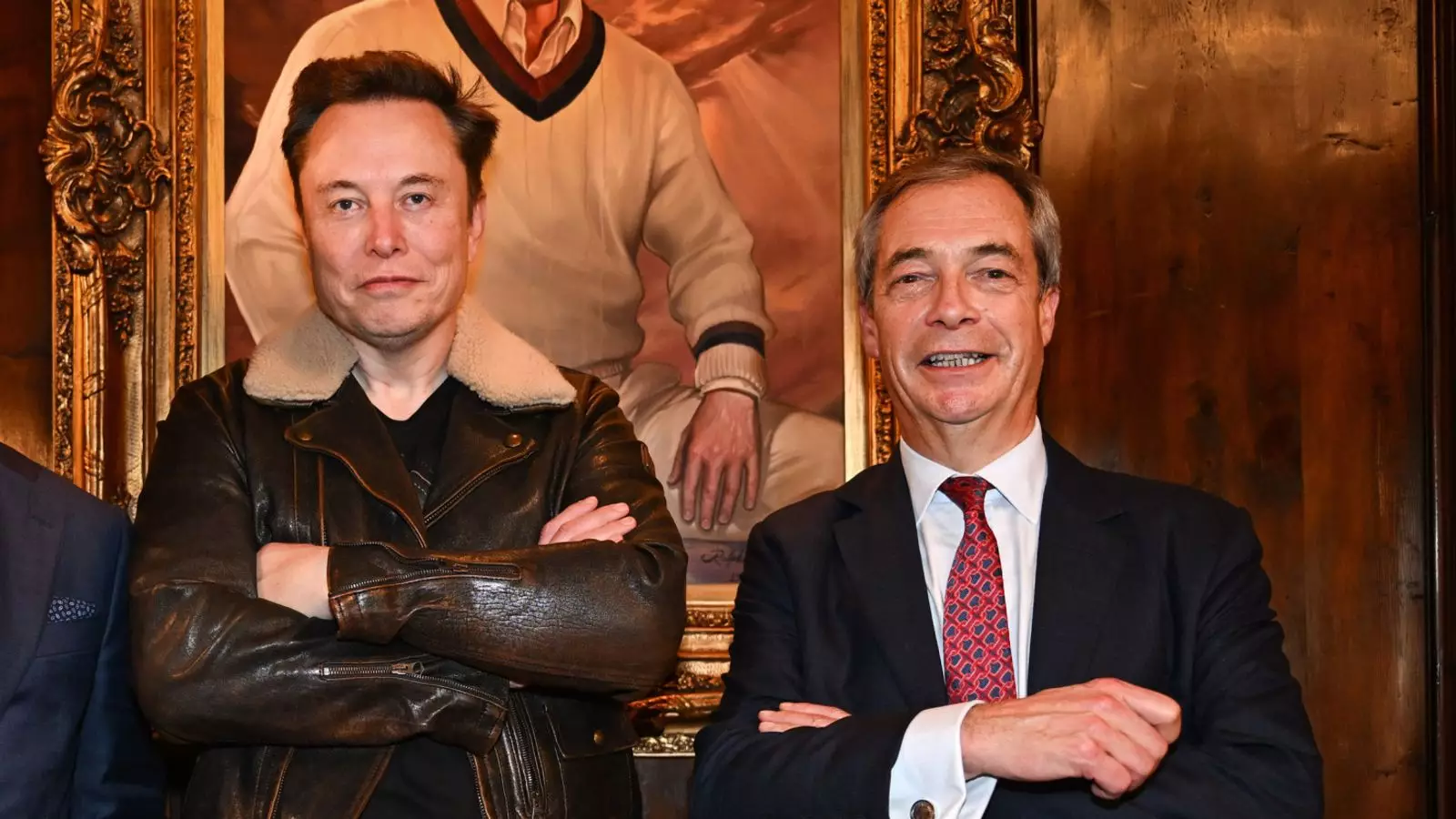In an increasingly complex political landscape, the Swiss-cheese nature of rules governing political donations in the UK has sparked heated debates among lawmakers and citizens alike. Ministers are reportedly preparing to overhaul a system that permits unlimited donations from foreign donors via UK-registered companies. This loophole has effectively allowed individuals with deep pockets, like billionaire Elon Musk, to influence British politics while remaining elusive to public scrutiny. The Government’s recognition of this issue comes on the heels of a staggering $100 million potential donation from Musk to Reform UK—a figure that would send shockwaves through the existing political donor landscape.
The idea that foreign entities can funnel money into British elections through companies that may not even have a profitable existence raises significant ethical concerns. The capricious nature of this system undermines the foundational principle of democratic elections being funded by those who are eligible to vote. When wealth takes precedence over the voices of constituents, democracy itself becomes increasingly tenuous.
Public Sentiment Matters: The Demand for Change
Polling data from Sky News reveals that the sentiment among the general populace supports reform. A whopping 77% of respondents believe it is unacceptable for foreign nationals—who have no stake in the country’s electoral processes—to donate to political parties. These numbers are not just a fluke; they signify a growing unease among voters who want to see their democracy insulated from the influence of unaccountable foreign money. Even among supporters of the party potentially benefiting from Musk’s anticipated donation, 73% disapprove of foreign contributions. This overwhelming public sentiment sends a clear message: voters want a political system where the interests of actual citizens take precedence over the financial muscle of billionaires.
While the government’s pledge to enhance regulations and foster transparency is encouraging, it must also be comprehensive. Political donations should reflect the wishes and values of the electorate, dictating a necessary refinement of the existing framework that currently does little to protect voters from outside influences.
Potential Consequences of Inaction
Should these reforms be delayed or discarded entirely, the implications could be dire. The anticipated infusion of cash from foreign nationals could tip the scales during elections, skewing policy representation and undermining public trust in political institutions. When parties become beholden to high-paying donors, the voices and needs of ordinary citizens risk being drowned out. This is particularly perilous given the already prevalent public disillusionment with politics.
Furthermore, the issue is not one of merely limiting donations but establishing stronger guidelines for accountability. Recent reports indicate that nearly £1 in every £10 contributed to political parties—amounting to millions—originates from unknown or dubious sources. Implementing crucial due diligence checks on donations from unincorporated associations or anonymous entities would foster a political environment that is both transparent and equitable.
The Role of Technology in the Future of Political Donations
In an age defined by instantaneous information sharing and social media influence, tech billionaires like Musk represent a unique intersection of wealth and political influence. Their capacity to impact electoral outcomes has raised alarms, prompting a more critical examination of financial practices in politics. Critics may argue that the government’s current reforms are reactionary rather than proactive, thereby illustrating the need for ongoing scrutiny and a re-evaluation of existing funding channels.
As citizens increasingly rely on digital mediums for political engagement, it’s vital that the rules governing campaign funding evolve accordingly. The government has an opportunity not only to restrict foreign funding but also to galvanize public interest in open political participation, empowering voters over financial elites. Transparency, accountability, and citizen engagement must be the watchwords of any new legislation aimed at reforming political donations.
The political landscape can no longer afford to remain a playground for the rich—radical change is not just necessary; it is indispensable if we are to ensure a truly democratic process that prioritizes the voice of the electorate over the whispers of wealthy foreign benefactors.

